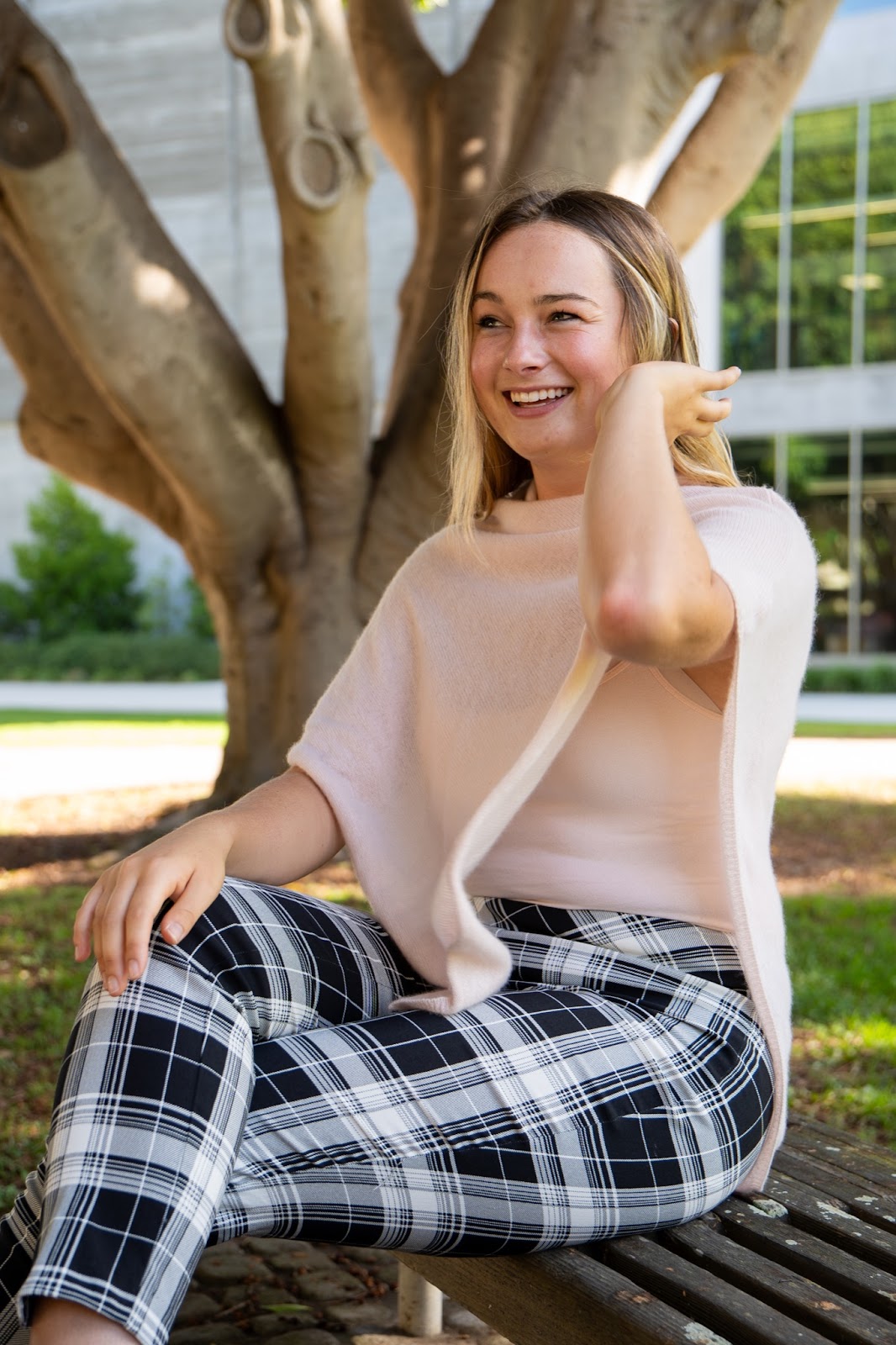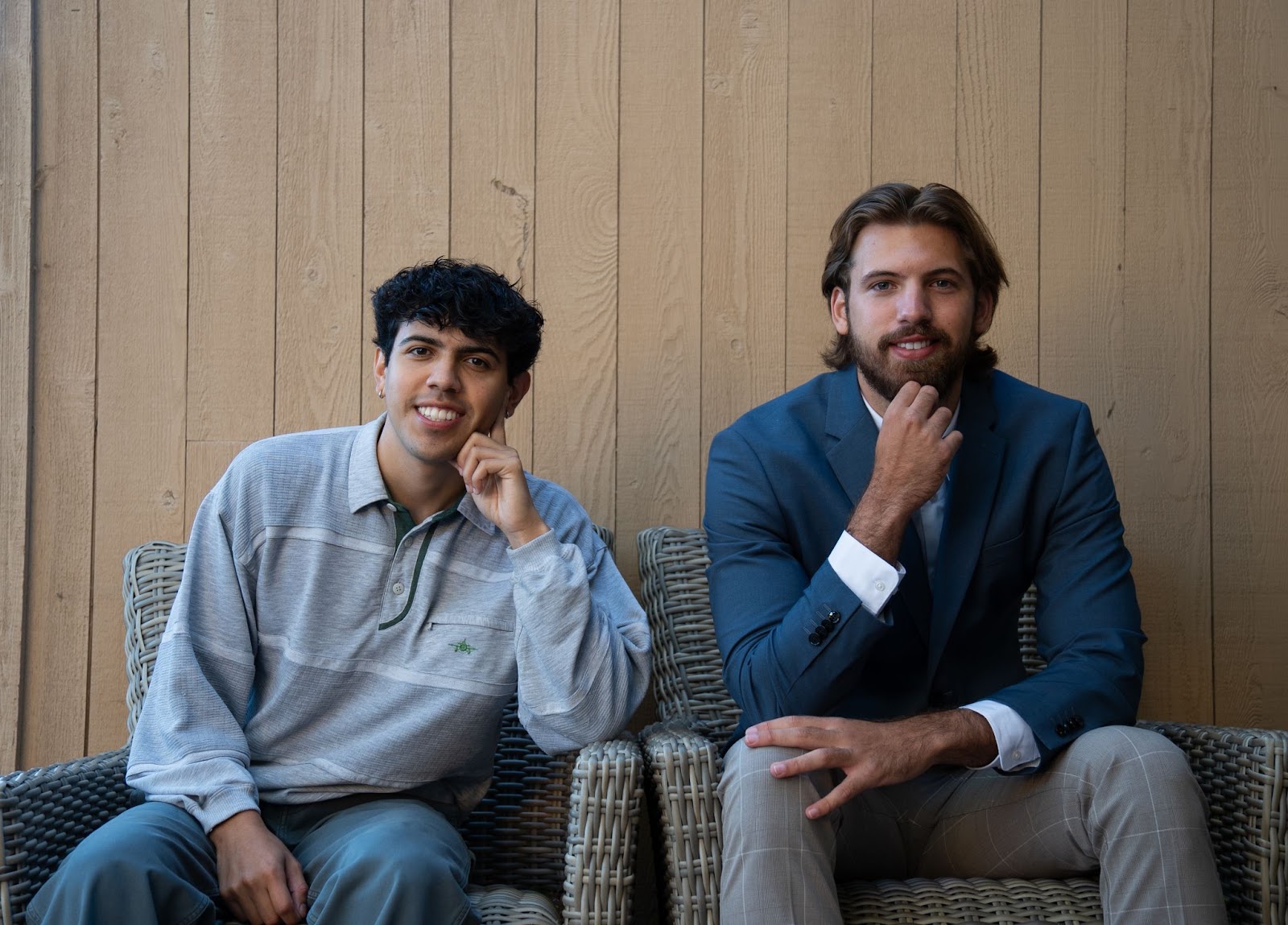Climate Action Fellows Take the Wheel on Sustainable Transportation
Each year, UC Santa Barbara chooses a select few undergraduate students as Climate Action Fellows. The Bonnie Reiss Climate Action Fellowship Program allows students to lead their own projects that support the University of California’s climate goals. This year, Mariah Hudnut, Anthony Zaragoza, and Calvin Weinstock took on the role of Climate Action Fellow and tackled UCSB’s Scope 3 emissions through sustainable transportation solutions.
Meet Mariah!

Mariah Hudnut is the ultimate matchmaker. This year, Mariah arranged a matchmaking service to connect UCSB staff, faculty, and graduate students interested in carpooling to campus. To reduce Scope 3 emissions, Hudnut curated a carpool survey, assigned matches based on location, arrival times, and departure times, and hosted a match reveal event. Her innovative project reflects a keen interest in transportation solutions, a passion that has developed over time. Growing up in Sacramento, Mariah was always exposed to the outdoors. Whether she went skiing with friends in the winter or hiking with her family in the summer, nature was centerfold in her childhood development. With this background, she chose to pursue the Environmental Studies major, where she gained a broad context of various environmental issues and a focused education on transportation. Currently, Mariah is developing a senior thesis assessing the public transportation systems and bicycle infrastructure in Santa Barbara and Santa Cruz County. With this deep understanding of transportation and interest in the University of California’s climate goals, Mariah Hudnut joined the UCSB Sustainability Department as a Transportation and Outreach Climate Action Fellow. While she has already made a significant impact on the UCSB community with her matchmaking service, Mariah has her sights set on expanding campus transportation initiatives. She is currently in the process of launching a program that teaches students how to ride a bicycle and the rules of the campus bicycle paths. Recognizing the popularity of biking on campus, Mariah is determined to make this transportation method accessible and safe to all students via training and educational demos. Partnering with Santa Barbara Move and the AS Bike Shop, she plans to launch this event at New Student Orientation. Now, Mariah Hudnut has joined UC Santa Barbara full-time as the Transportation Alternative Program Supervisor, providing her innovative eye and academic expertise to improve accessible and sustainable transportation at UCSB.
Meet Anthony and Calvin!

Anthony Zaragoza and Calvin Weinstock are the dynamic duo tasked with reporting and analyzing data on transportation methods utilized by the UC Santa Barbara community. Anthony, a fourth-year Environmental Studies student, has developed a mission to positively impact the communities and environment around him through urban planning. Growing up in a small town, Anthony noticed a lack of infrastructure necessary for safe and sustainable travel which inspired him to focus on the transportation sector. Anthony shares this focus with his partner, Calvin, a fourth-year Economics and Accounting student. Calvin has grown his interest in city planning through participation in transportation courses offered by the Environmental Studies and Geography department. With an emphasis on equitable access and reducing carbon emissions, Anthony and Calvin joined the UCSB Sustainability Department as Climate Action Transportation Fellows. Anthony and Calvin are analyzing and organizing over 2,500 responses from a transportation survey given to UC Santa Barbara students, faculty, and staff. This survey seeks to understand current preferred modes of transportation and common barriers to incorporating sustainable alternatives. Some survey questions ask about familiarity with the mechanics of a bicycle or the frequency of using a specific bus line. Calvin and Anthony also compare and contrast this year's data to that of the past, having conducted this study over ten times in the last two decades. Comparing past data reveals the impacts of time-specific events such as road closures or the gradual increase in electric bicycle manufacturing. With this in-depth analysis, Calvin and Anthony propose and consider innovative solutions such as installing more storage boxes for e-bikes or creating a locker room space for faculty to change after biking to campus. The data duo has presented their findings to multiple UCSB and UC Systemwide committees, they are currently working on several grant proposals, and have developed several proposals for new changes. With the study of multiple perspectives, Calvin Weinstock and Anthony Zaragoza are utilizing data analysis and innovative problem-solving to break down barriers to sustainable transportation for the UC Santa Barbara community.